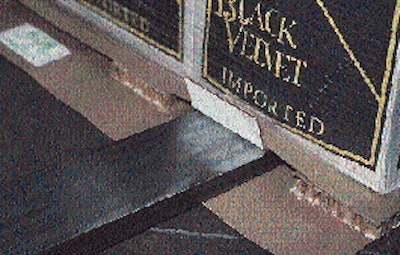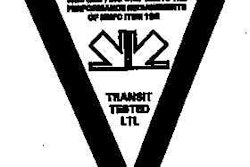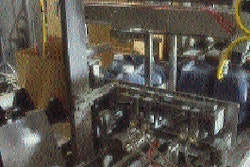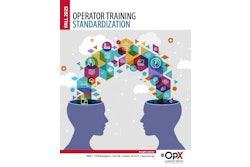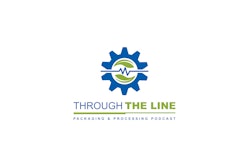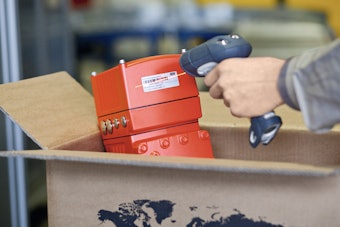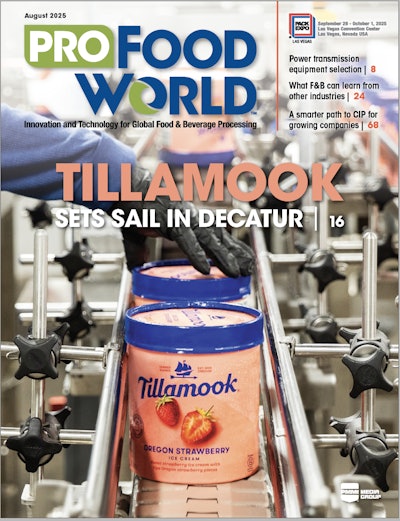The Washington State Liquor Control Board used to receive and ship cases of liquor to its outlets on wooden pallets. Maintaining those pallets in satisfactory working condition for more than one trip, however, proved downright dispiriting. That is, until the Board turned to one-way fiberboard pallets from Down River Intl. (Sacramento, CA).
The standard Hy-Cube(TM) 48" x 40" fiberboard pallet stands 7/8" high and weighs 5.84 lb. By replacing wood with Hy-Cube pallets, the Olympia, WA-based WSLCB saves more than $100ꯠ/yr in freight and repair costs.
The recyclable Hy-Cube includes a top "deck" sheet and a bottom "base" sheet, both made of 50-pt chipboard. Laminated paperboard guide tabs that extend from the deck sheet give forklift operators a target. The base sheet has a 2" "guide porch" or extension that eases the entry of the vehicle's forks.
Sandwiched between these top and bottom sheets are 3/4" high spacing pads made of expanded C-flute corrugated comprising 21# /26# /21# kraft. A cold glue adhesive bonds the pieces together.
"More than 350 worldwide spirit suppliers ship product to us now on Hy-Cube pallets, which saves us in excess of $100ꯠ each year," notes WSLCB general manager Richard Foltz. "In addition, we have totally eliminated all in-bound wooden pallets nationwide, and all accompanying salvage, repair and exchange operations."
"Washington is a controlled liquor state," explains Lowell Huebner, WSLCB's assistant director, purchasing and distribution. "We serve as the exclusive wholesaler and distributor for any distilled spirits sold within the state of Washington. We also market a small amount of wine and malt beverages."
Liquor suppliers ship unitized product loads to WSLCB's 243ꯠ-sq-ft distribution center in Seattle where product is warehoused, then repackaged into mixed loads that may include partial cases to meet specific orders from some 360 statewide retail outlets. These locations include state-regulated agencies operated by commissioned "agents" who follow WSLCB pricing guidelines, as well as more traditional retail stores that are staffed with state employees. On an annual basis, Huebner notes, "our volume is about 3.5 million cases, with an approximate value of $360 million."
One-way solution
In years past, wooden pallets were used by liquor suppliers to ship pallet loads to the center. Those pallets were then used to ship loads to retailers. Empty pallets came back through the system to the suppliers for reuse. "We realized we had to find an alternative because the labor necessary to maintain the pallets and keep them moving through the system was cost-prohibitive," explains Huebner. "We looked for something that could be used one-way."
WSLCB's search led to the use of a fiberboard pallet referred to as a BOP sheet, developed in '86 by Bel-O-Pak. Down River acquired North American rights to the pallet in '91. After conducting tests, the supplier made improvements to the pallet, introducing it the following year as the Hy-Cube. The Board switched to the Hy-Cube shortly thereafter, requiring its suppliers to follow suit. "The original fiberboard pallet had an accordian-like entrance that made it somewhat difficult for forklift drivers to fit the forks into. The Hy-Cube makes it easier to insert the forks and requires less operator skill," says Huebner.
And while he admits, "the escalating costs of paper have increased the cost of the fiberboard pallet since we first went into the BOP sheet, we've been very satisfied with its many benefits." Benefits that undoubtedly have raised WSLCB's spirits.
